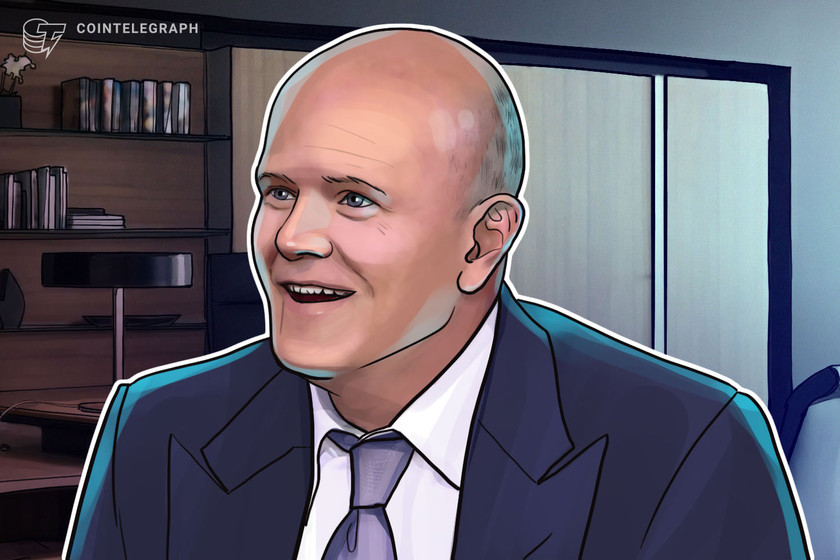Optimism reigned at Paris Blockchain Week


Careful optimism was the theme at this year’s Paris Blockchain Week. Builders will build and the crypto community will keep going.
Expectations for Paris Blockchain Week were relatively low considering the downbeat market conditions. However, Paris can always surprise you. Indeed, conference halls at the event were not nearly as empty or depressing as Consensus after the big crypto meltdown of 2018. People were present, and conversations were fruitful. (And yes, the croissants were, as always, delicious.)
In 2022, the conference was held symbolically in Palais Brongniart, a building known for hosting the historical Paris Stock Exchange until 1987. This time, organizers managed to outsoar themselves and held the event right under Louvre in the elegant “Carrousel du Louvre” conference halls.
Paris Blockchain Week 2023. Here’s beginning pic.twitter.com/ZnmlhWcQpE
— DavidSHLee (@davidshlee11) March 21, 2023
Evening side events took place all around central Paris, overlapping and pushing some attendees to have three or even four dinners each night. Star speakers did not make any overly positive market predictions, but the conference vibe was definitely optimistic.
Is Paris the next best bet for crypto?
With regulators tightening their grip on crypto companies in the United States, Europe might be the next bet for crypto. While Paris is already home to prominent companies in the space — such as Ledger and The Sandbox — rumors are spreading that some big players will move their offices here or become more active in Paris.
We were honored to host @jerallaire, Co-Founder and CEO of @circle, at Paris Blockchain Week.
He shared his insights on the urgent need for the US government and regulators to catch up with other countries in setting clear rules for stablecoins. Allaire highlighted the… pic.twitter.com/wc4FFVJuyU
— Paris Blockchain Week (@ParisBlockWeek) March 29, 2023
Binance held its blockchain event in Paris last year. Circle just announced that it is seeking regulatory approvals in France and wants to establish a headquarters in Paris. Who knows? Coinbase could be next. Obviously, regulation will be a major factor in the future success of any European stablecoin or crypto service.
Need for crypto consortium
Another subject that flowed through many keynotes and discussions was the lack of industry collaboration. While it’s obvious to everyone now that crypto’s narrative is falling short, the question is: How can major industry players unite to stabilize the industry long-term and ensure its growth?
Related: EU MiCA crypto regulation is a ‘balancing act’: Paris Blockchain Week 2023
Some experts called for the industry to self-regulate as malicious players hurt everyone in the sector. Others stressed out a much-needed dialogue with regulators. If rules come from dusty offices without consultation with crypto industry players, the threat remains that those laws will become too complex, expensive or impossible to implement. Most experts agree and advocate for an industry-wide consortium. While initial industry collaborations to build discussions with the regulators have already started in the U.S. this year (with questionable results), much more effort is required.
Interoperability challenge
Experts across multiple panels raised interoperability concerns. Privately operated and centralized bridges have shown a vulnerability to hackers, and the lack of connectivity between networks hurts user experiences significantly and slows adoption.
Had an amazing time at the Paris Blockchain Week! From the Talent Fair to the Summit, we explored the latest in blockchain tech and met with fellow professionals. Share your feedback! What did you enjoy most? Did you make valuable connections?
#PBW2023 #AfterPBW pic.twitter.com/Ip0Xj8hewd— Paris Blockchain Week (@ParisBlockWeek) March 28, 2023
Mobile carriers faced the same issues in their early days, but different smartphones and networks nonetheless manage to communicate flawlessly with each other today. Crypto users should similarly be able to switch in a safe and simple manner between applications and blockchains. From a technical standpoint, cross-application calls remain challenging even within a single blockchain, not to mention the same operation between two applications on different networks.
❤️ Success favors those who enjoy what they do.
It was so fun and rewarding to chat with the brilliant, gregarious and delightful gigachads @yana_vc, @SamGab_G and Dominic Briggs at #ParisBlockchainWeek.
Looking forward to my next panel on March 23 at the Louvre. pic.twitter.com/lzpZsECctX
— Igneus Terrenus (@IgneusTerrenus) March 22, 2023
Existing solutions to traditional bridging (wrapping assets) are so-called “message passing” protocols that don’t move assets but enable calls between blockchains instead. Others are blockchain operating systems that use “state proofs” and reference them on other chains.
Related: PBW 2023 explores the current state of the blockchain space
If this technical debate feels a bit overwhelming, the key takeaway is that many bright minds are seeking core technical solutions for interoperability. However, nailing it down in a decentralized way might take them a few more years.
This year’s Paris Blockchain Week presented curated content, carefully balanced between commercial talks, panels on deep tech and narrow topics, and entertaining keynotes — imagine Tim Draper singing a Bitcoin song on stage. (Yes, that happened.) Careful optimism prevailed; builders build and keep going!
This article is for general information purposes and is not intended to be and should not be taken as legal or investment advice. The views, thoughts and opinions expressed here are the author’s alone and do not necessarily reflect or represent the views and opinions of Cointelegraph.







































